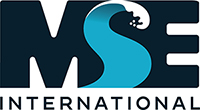Looking back at the IMarEST-hosted Russian Maritime Industry visit to the UK

The allocation of about 110 billion roubles to support the domestic shipbuilding sector in 2009 was announced by Russia’s Prime Minister Putin in St Petersburg on 6 March 2009. He also instructed that reform of the shipbuilding industry must be completed by April 1 in order to form the United Shipbuilding Corporation. The following week, a major Russian maritime delegation visited the UK, including representatives of the Corporation led by Professor Vladimir Alexandrov, Director General of Admiralty Shipyard in St Petersburg.
The visit was hosted by the Institute of Marine Engineering, Science and Technology (IMarEST), and sponsored by the American Bureau of Shipping, Aveva and the United Shipbuilding Corporation. It included an exchange of views with BVT Surface Ships in Portsmouth on various aspects of integrating different businesses and a day long conference on maritime and industrial issues.
The conference covered technology (innovation, ship design, and propulsion); skills and training; the global shipping industry; shipping finance; commercial aspects; regulation and management (e.g. steamlining) with a total of 23 speakers representing both sides, including UK sector leaders from international organisations, Government, industry, the financial sector and other key organisations. It was opened by the Head of the Russian Trade Delegation in London, Victor Spasskiy, and closed by the President of IMarEST, Professor Yoo-Sang Choo.
In a keynote address, Professor Alexandrov explained that the Russian shipbuilding industry incorporates 170 companies which between them they employ some 200,000 people.
By 2020 Russia plans to build some 1400 vessels including 26 icebreakers ranging in size from harbour icebreakers to a nuclear powered icebreaker; 27 research ships; seven offshore nuclear power plants for Northern regions; 40 gas carriers (including vessels with ice reinforcement); marine equipment for shelf development including 25-30 exploration and production platforms and 80-90 supply vessels and technical support vessels; up to 230 tankers (incl DWT over 70,000 t) such as bulk carriers, universal and multi-purpose vessels and timber ships; 25-30 seagoing passenger and freight ferries; up to 180 fishing vessels; and up to 750 other ships for upgrading the Russian fleet (river service ships and mixed river-sea-going ships, technical support vessels, domestic needs and state supervision ships, etc).
"We were delighted to host these important talks and to facilitate further understanding between the two nations at a time when we are celebrating our 120th anniversary," says Keith Read CBE, Chief Executive of IMarEST. "In addition to being key figures in the Russian shipbuilding industry, many of our guests are Fellows of IMarEST. We hope to repeat the success of this week by encouraging further such exchanges in the future."
If you would like to find out more email judithpatten@wwmail.co.uk
 Send this story to a colleague
Send this story to a colleague


